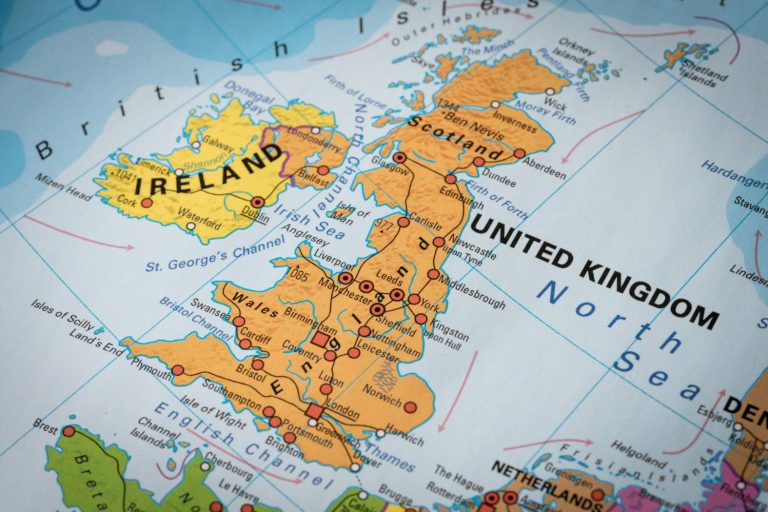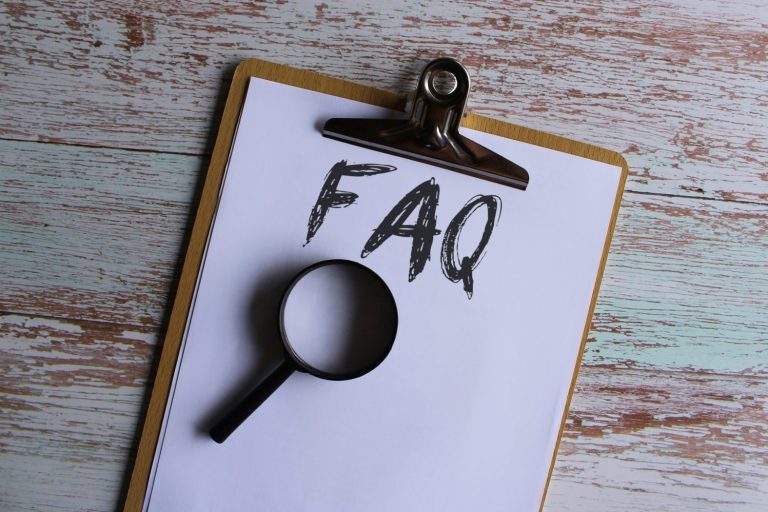
How many digital marketing agencies are there in the UK?
Keen to find out exactly how many digital marketing agencies are currently operating in the UK? As one of the thousands of digital marketing agencies
Most people I know are quite clear that what they see on social media is not just random. They understand that much of it is curated by algorithms and presented to them as a way of reinforcing their attitudes and beliefs. Yet despite knowing that, they continue to believe what they see. They continue to ‘like’ or ‘love’ things which strike a chord with them and comment, positively or negatively, on anything that grabs their attention.
What they find hard to do though, in common with most of the population, is see through nudge marketing.
Nudge Marketing is a particular form of marketing that instead of using old fashioned explicit messaging like ‘buy our soap powder as it will make your clothes cleaner and smell nice’, uses a more subtle approach of suggestion. It is not a particularly new concept as it has been around for over a decade, but its use has become particularly relevant and noticeable during the recent coronavirus crisis.
The UK Government have been accused of using it indiscriminately and several of their advertisements have been roundly criticised or even banned by CAP/ASA for breaching guidelines. Of note in recent months has been a spate of ‘don’t kill granny’ messages, where the advertisements target a specific segment of the population, typically young adults, urging them not to mix as they might contract the virus, take it home and inadvertently pass it to an elderly relative who might then die.
There are a great many issues with this, not least of which being that the likelihood of these events occurring, exactly in that order and resulting in a death of a relative for no reason other than them congregating with their friends, has not been explained. Similarly, with a current Infection Fatality Rate of less than 1% in the UK, largely because the elderly and most vulnerable have all been double vaccinated, no one is clearly articulating the chances of this happening. It is presented as a statement of fact; it will happen if you meet with friends, and it is designed to nudge perception and behaviour towards caution.
In March 2020 the Guardian wrote about how the use of ‘nudging’ was a cornerstone of the Government’s’ approach to messaging and since then, members of SAGE, many of whom have qualifications in behavioural sciences and psychology, have been criticised for instilling a sense of fear in the general population and overstating the risks from COVID-19, primarily through nudges.
What is disturbing a number of commentators now, including me, is that social media feeds, particularly Twitter, are being attacked with blanket messaging to reinforce one or other position in this debate and the implications are quite sinister.
Just this week the BBC tweeted and article confirming the Prime Minister’s message that all Covid restrictions were being lifted on 19th July. Underneath that tweet was a response from a user under the name LFCMike_ just sixty seconds after the original tweet went out.
It might be that Mike, our Liverpool fan, was online at the very moment that tweet was sent out by the BBC, and that he’s quite nifty with his fingers. Whatever the circumstances he managed to immediately post “this is disgusting, masks and social distancing should be in place till minimum christmas time at the earliest, the government are clueless, the Delta variant should be taken seriously and we should go into a national lockdown to prevent it spreading”.
Everyone is, of course, entitled to their opinion, as can be seen if you look at the diverse range of opinions amongst the 1,500 comments it gathered.
What’s even more interesting though is that the exact same tweet was posted five hours earlier by Sam, who is apparently a Wolverhampton Wanderers fan, who said this;
What is curious though, is that the original message was adapted to the more politically correct ‘Delta’ variant in that small time window, and by the time the BBC article was attacked the same message was posted at the same or similar time, by a wider range of accounts, many of them purporting to be real people. Here’s a screen grab of nine of them compiled by a Twitter user who spotted the issue. Notice that they nearly all have the extra space after the word Delta, where they have copy pasted the new word to overwrite Indian from the original tweet.
The conclusion of the person compiling this list was that this was clearly bot accounts, all lining up to push the message and indeed, if you check Google now then this same tweet can be found over 90 times across a range of different and seemingly independent accounts.
Oddly, when you dig into some of these accounts, there are a number who are fixated on football, particularly with an affiliation to a single club. Take, for example, this one who goes under the username of AzpiCesar28, in homage to the Chelsea captain, Cesar Azpilicueta. They are mentioned in the image above and when you look at their account it seems quite strange.
Given the level of activity and the number of tweets, it would appear to be a genuine account run by a real person, however the tweet they made in this instance stands out as being so off topic for them that it is weird. A fact clearly pointed out by people who saw it at the time;
Note that Azpi used the original ‘indian’ rather than ‘delta’ message. Perhaps they didn’t get the memo…? From this they felt compelled to clarify their positions and that they are not a bot;
I agree. It doesn’t read like a bot, spelling mistakes included and if you go back through the timeline, just a few days earlier they were happily proclaiming that they didn’t need a job as they work on Twitter full time.
I think they do work on Twitter full time, and not just to provoke ‘snowflakes’ and like many others mentioned here, most of whom have similar type accounts, I think this is someone paid to post a particular pre-determined message at a particular time, and it is just a matter of speculation as to whether they were paid for this. Either way, the attention this has created has led them to today announce that they are leaving Twitter forever.
Spoiler alert – they aren’t leaving Twitter. This account may well be ditched as their cover is blown but they are going nowhere particularly if they are getting paid to promote certain messages.
For those of you shocked by this, you shouldn’t be. There’s a huge and willing market for this type of service as evidenced by this image from one website offering to help promote tweets.
Anyone familiar with Twitter won’t be surprised by this. It’s been know as something of a ‘bear pit’ for years and unless you are spoiling for a fight with someone it’s probably best left well alone. But the brazen use of paid individuals and, I’ve no doubt, bot accounts to push a narrative does raise a series of questions.
How can the public be sure that they aren’t being nudged? Are there certain topics where paid nudging (or advertising to give it a real name) is more prevalent than others and who is paying for this? Is it UK based individuals and companies wanting to promote a particular viewpoint or are we seeing attacks by bad actors aiming to destabilise the UK population by polarising opinions and turning people against each other?
Who stands to gain the most from this?
On the face of it, the tweet in question seems to favour face mask manufacturers and distributors, but whoever it was, it appears that this has backfired. Not only has this been called out by the Twitter community, but the accounts who are accepting money for this have been identified.
Whatever the story behind this one, what is clear is that advertising has clearly moved into a new era. Not only do we now not know when we are being sold to, we also have no idea who is paying for it. Add to this lack of transparency a lack of accountability and it makes you wonder if the regulation of advertising by the CAP/ASA is still fit for purpose in this digital wild west?
Postscript:
After writing this, within hours, another example of this type of manipulation appeared on Twitter, this time based around a similar message criticising the Government’s relaxing of restrictions on July 19th. The new message read:
My brother has just tested positive for covid. The delta variant. He has been double jabbed. How on earth can Johnson go ahead with relaxing the rules on the 19th July. It’s madness. @BorisJohnson
Google has, of course, captured all instances of this tweet and unsurprisingly it can currently find 329 instances of this tweet, showing that this is clearly a coordinated attack.
Twitter users were quick to point out that there was, once again, a concerted effort to nudge perceptions by this ‘washing’ of people’s feeds with a pre-arranged message.
Whilst most right minded libertarians would agree that there exists a right for people to hold any opinion they like, I’m fairly sure they’d also agree that this right does not preclude them from adherence to societal norms. In this case, the messaging is clearly advertising and if it is treated as such, there should be someone held accountable for its suitability.
Legal, Decent, Honest and Truthful are the watchwords of the advertising code and by any measure, this fails on at least two of them. Twitter and other social media platforms should not be exempt from being held accountable for allowing this to happen.

Keen to find out exactly how many digital marketing agencies are currently operating in the UK? As one of the thousands of digital marketing agencies

Home to countless companies, London’s thriving business landscape is often at the forefront of the very latest changes and challenges. To survive in this ever

Meta descriptions play an important role in Google search results. Despite the fact they don’t directly impact a website’s ranking, they still influence click-through rates

Sheffield is renowned for its lively atmosphere and fascinating heritage. However, there are many things people don’t know about this wonderful city in the county

It’s a well-known fact that bustling Birmingham is the second largest city in the UK, but there’s far more to learn about this fascinating West

Searching for more ways to make your website’s informative content appear in the SERPs (Search Engine Results Pages) as a rich snippet? Many businesses create
This website uses cookies so that we can provide you with the best user experience possible. Cookie information is stored in your browser and performs functions such as recognising you when you return to our website and helping our team to understand which sections of the website you find most interesting and useful. Please review our full Aqueous Digital Cookie Policy for more details.
Strictly Necessary Cookie should be enabled at all times so that we can save your preferences for cookie settings.
If you disable this cookie, we will not be able to save your preferences. This means that every time you visit this website you will need to enable or disable cookies again.